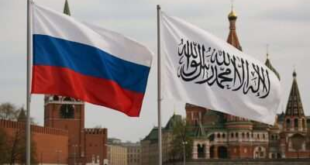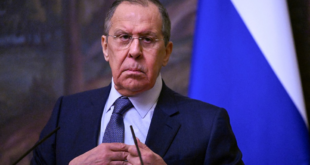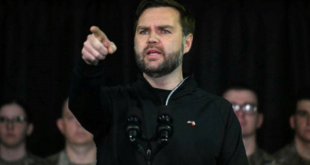WASHINGTON – Foreign Affairs Minister Maxime Bernier called for more global “political will” Tuesday to stabilize and rebuild Afghanistan, telling the United Nations that “no one country can do this alone.”
In his first speech to the UN General Assembly in New York, Bernier said the efforts of some 60 countries and international groups are commendable, but a new high-profile UN envoy for the NATO effort in Afghanistan would attract more help and better co-ordinate diverse efforts.
In the 10-minute speech delivered mostly in French to appeal to Quebec critics of Canada’s role in Afghanistan, Bernier reminded them it’s a UN-mandated mission and cast Canada’s involvement there as a direct expression of Canadian values.
“Canada’s commitment is not a function solely of our interests but also, and above all, the values Canadians hold dear – values such as freedom, human rights, democracy and the rule of law,: he said.
“These are the values underlying our presence in Afghanistan, Haiti, Sudan and elsewhere,” said Bernier, who also called on the UN to support the restoration of democracy and human rights in Myanmar – also known as Burma.
But the UN’s role in Afghanistan is the world body’s “most important special political mission,” said Bernier, who took over the foreign affairs portfolio in August.
“The challenge may be great, but the principles we’re defending are greater still.”
Promoting those values isn’t enough, he said. “They must be protected and defended, particularly when they are under assault.”
The speech was criticized as vague and one-dimensional by some, while others supported the idea of appointing a UN emissary for Afghanistan.
The special envoy’s role would be modelled on Tony Blair, who has been promoting Mideast peace since stepping down as British prime minister.
Bernier talked about the idea in some 30 bilateral meetings at the UN last week.
“We built a strong case,” he said in an interview after his speech, but it’s not clear yet how UN Secretary General Ban Ki-moon will respond.
The idea has support from several countries including the United States, Norway, France and Spain.
Bernier also used the meetings to ask for more troops, equipment and humanitarian aid for Afghanistan.
The French government committed to putting more airplanes in the southern province of Kandahar and sending 150 more soldiers to train Afghan forces, he said.
“Maybe in the near future, we’ll see other actions by other governments,” said Bernier, calling himself “realistic” about what Canada can expect.
“I think every country must share the risk.”
Canada, under intense public pressure to leave Afghanistan when its current mission ends in February 2009, wants countries like France, Germany, Spain and Italy to allow their soldiers into combat zones to fight Taliban militants.
Combat is currently shouldered by Canada, the United States, Britain, the Netherlands and Australia.
Two-thirds of Canadians have said their soldiers shouldn’t stay longer than the deadline. More than half have told pollsters they should get out even sooner. Quebecers are particularly opposed.
Paul Jackson, a political science professor at Concordia University, said Bernier’s speech was “incredibly vague” and didn’t include any measures for success in Afghanistan.
“Stability doesn’t mean anything unless we define it. He doesn’t define anything.”
Jackson also questioned Canada’s commitment to the values Bernier espoused, considering it hasn’t supported the UN declarations on the rights of indigenous peoples and has rejected the Kyoto protocol to fight global warming.
The speech was also attacked by New Democrats as a missed opportunity to make Canada a world leader in peacekeeping and multilateralism. “This government has but one foreign policy vision – a military campaign in Afghanistan,” the NDP says.
Without security there, said Bernier, there’s no way to ensure political stability.
“Where anarchy reigns, there can be no health services or education. Economic development is impossible when chaos is all around.”
Bernier said Canada is always striving to make a stronger contribution on the international scene. But when it comes to Afghanistan, the UN, NATO and World Bank all have to work together.
He called on the UN to extend the stabilization mission in Haiti, where Canada has played a prominent role.
In Sudan, he said, peacekeeping missions are forming a security framework for durable peace.
And he praised the UN Human Rights Council for holding a special session on Myanmar.
On Tuesday, the council condemned the Myanmar government’s crackdown on opposition protests, urged an immediate investigation into the beatings, killings, arbitrary detentions and enforced disappearances.
“In Burma, it is imperative to restore democracy and human rights. We expect the UN to be at the forefront of these efforts,” Bernier said.
Canada has long had problems with the global body’s human rights arm, complaining that some of the worst abusers are members.
“I will look at the future,” Bernier said following the speech. “I think in the future the council will be more effective. I don’t want to condemn past works.”
The minister didn’t raise Afghan President Hamid Karzai’s call for negotiations with the Taliban. Bernier said earlier this week: “We hope the negotiations will only be conducted with individuals and organizations that will respect human rights and renounce violence.”
 Eurasia Press & News
Eurasia Press & News



